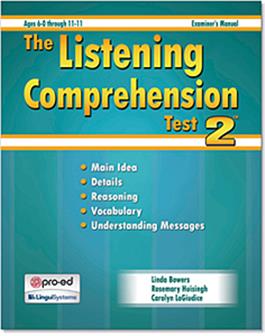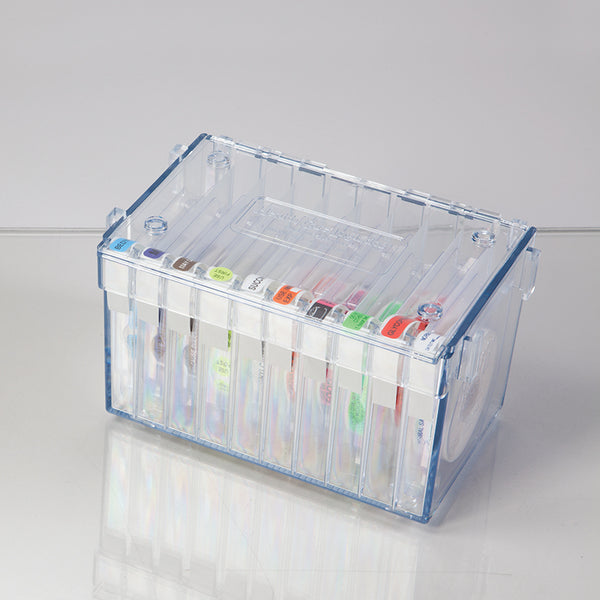
The Listening Comprehension Test 2 (LCT-2)
Product Code : MPS8-34060
$241.50
Vendor: Vasyli
Available
Linda Bowers Rosemary Huisingh Carolyn LoGiudice Description Ages: 6-0 through 11-11Testing Time: 35 minutesAdministration: Individual The Listening Comprehension Test 2 assesses listening through natural classroom situations rather than evaluating...
Linda Bowers Rosemary Huisingh Carolyn LoGiudice
Description
Ages: 6-0 through 11-11
Testing Time: 35 minutes
Administration: Individual
The Listening Comprehension Test 2 assesses listening through natural classroom situations rather than evaluating listening through simple repetition or discrimination subtests. The tasks reveal students' strengths and weaknesses in integrated language problem solving, reasoning, and comprehension of material presented auditorily.
Because children need the basic skill of listening (receiving, attending to, interpreting, and responding to verbal messages and other cues) in order to succeed in school and in life and because classroom listening is such an integrated process, each subtest on the Listening Comprehension Test 2 requires students to:- pay careful attention to what they hear
- listen with a purpose in mind
- remember what they hear well enough to think about it
- avoid being impulsive in giving answers
- express answers verbally
Subtests
- Subtest A: Main Idea - The student identifies the main idea after listening to a passage read aloud by the examiner. The student must recall his background knowledge of the topic and process the overall meaning of the passage.
- Subtest B: Details - The student listens to a passage and answers a question about the details. The student must rely on grammar, vocabulary, and the semantics of the passage to comprehend the details.
- Subtest C: Reasoning - This subtest taps into higher-level cognitive skills. The student infers answers from information presented verbally.
- Subtest D: Vocabulary - The student gives a one-word synonym or a descriptive definition for a word heard in a passage.
- Subtest E: Understanding Messages - The student listens to a short message and answers two questions about it.
COMPLETE KIT INCLUDES: Examiner's Manual and 20 Test Forms. ( 2006)
Please contact testquestion@proedinc.com for revised normative tables.













